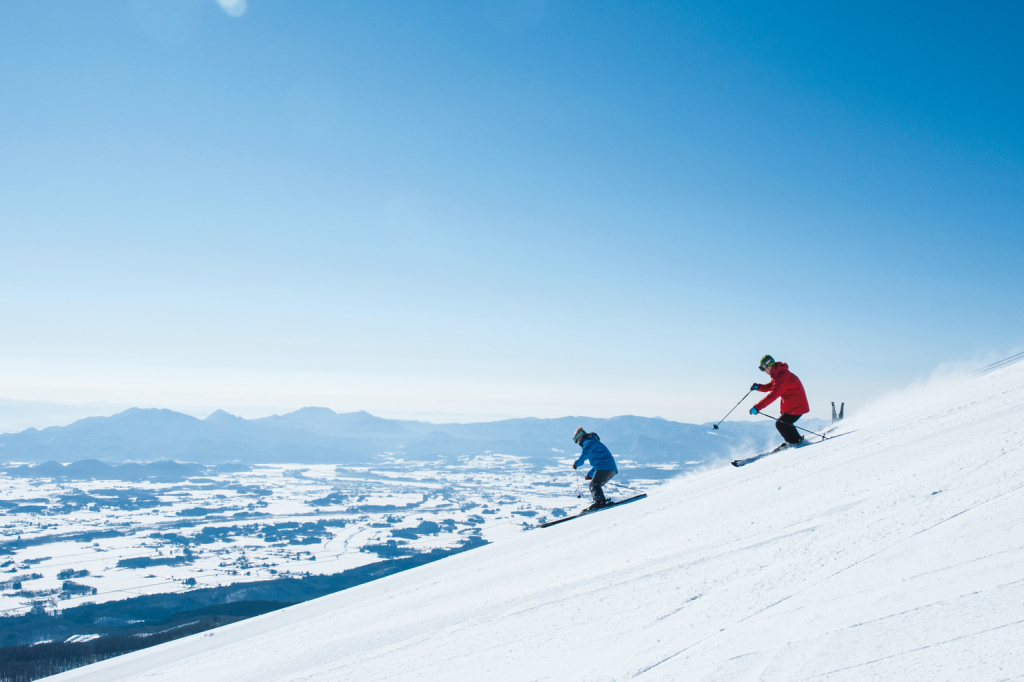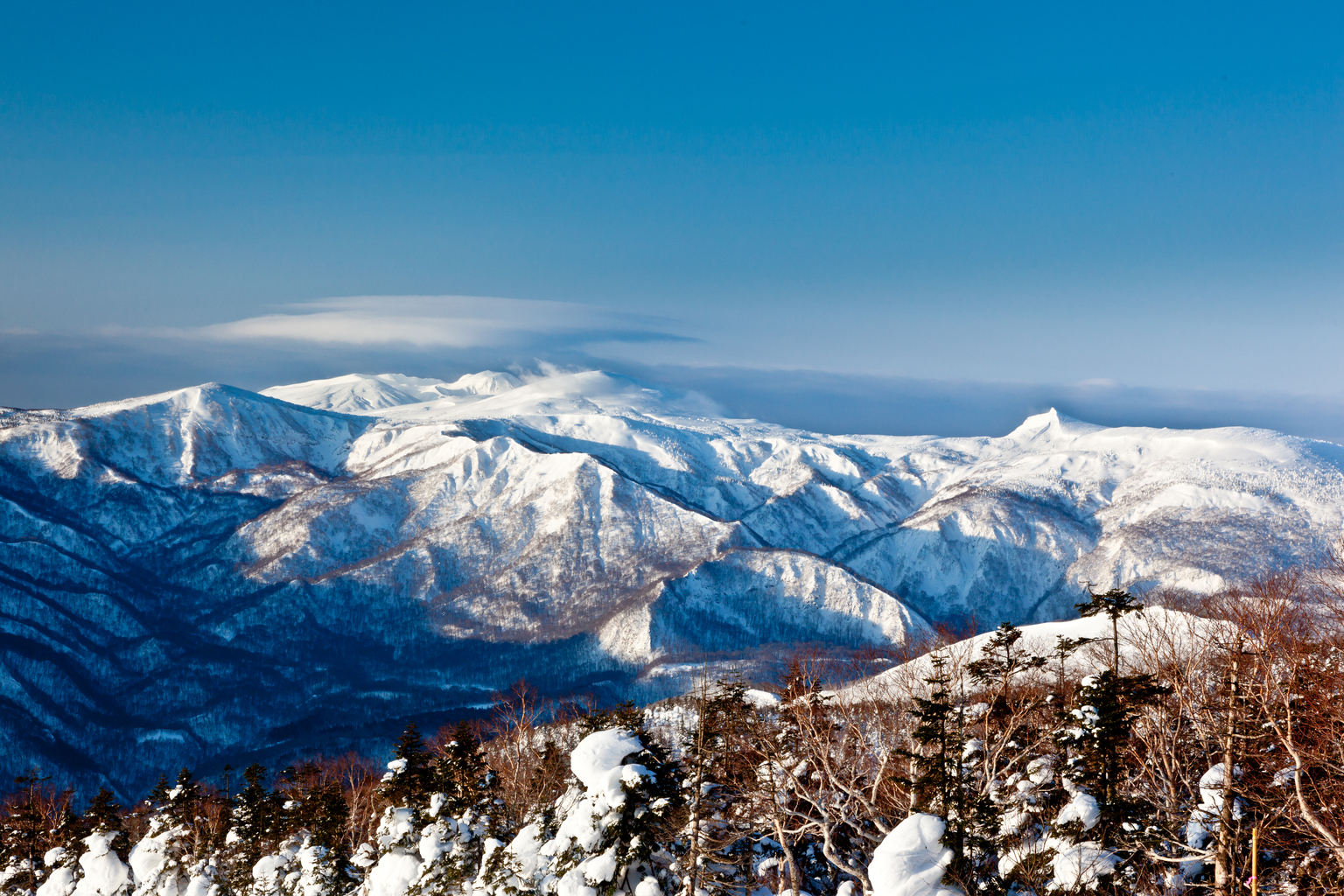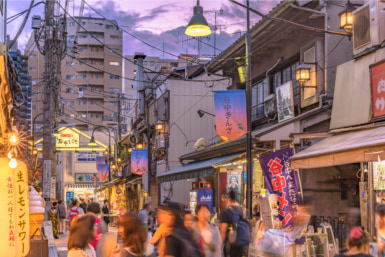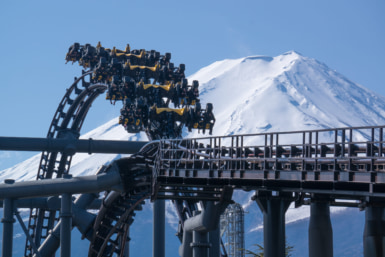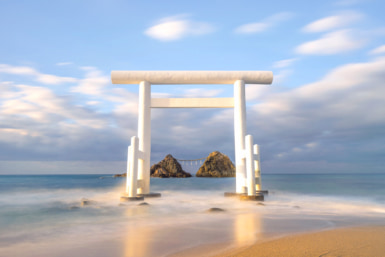Situated in the mountains along the western border of Iwate Prefecture, close to Morioka, the small town of Shizukuishi can be reached in three hours from Tokyo on the Akita Shinkansen. Its proximity to Mount Iwate, a plentiful supply of high-quality snow and a choice of three ski resorts make the area a great choice for winter sports. There are also hot springs and nature-themed activities on offer. If you’re looking for a laidback winter getaway laced with genuine local hospitality, Shizukuishi ticks all the boxes.
Hit the Slopes
All Shizukuishi’s ski resorts are located on the southern side of Mount Iwate, and you can choose the one that best suits the needs of your group or try out all three. The biggest is the Shizukuishi Ski Resort next to the Shizukuishi Prince Hotel, providing ski in, ski out convenience for guests. It had the distinction, in 1993, of being the first place in Asia to host the Alpine Ski World Championships. There are 11 ski trails, the longest of which runs for 4.5 kilometers. The resort caters very well for families. Shizukuishi Snowland offers child-friendly activities like sledding and tubing, and a kids’ club keeps little ones entertained while adults are out on the slopes. If you’re looking for something more challenging, try the “cat skiing” — guided backcountry exploration with a snow cat transporting skiers out to untouched snow. Multilingual signs and support are offered for international visitors at the resort.
“I particularly recommend our hotel’s Shizuikishi Takura Onsen spa — an open-air hot spring bath inside the hotel. It provides wonderful views, including a pond with carp swimming right next to the hotel, which you can see from the onsen,” says Osamu Yoshida, manager-in-chief. The hotel also offers stargazing tours where visitors can ride the ropeway up to see uninterrupted night views.
According to serious skiers, Amihari Onsen Ski Resort has the best powder snow in the area. This comprehensive resort has seven trails for all levels, the longest being three kilometers, along with a ski school and a children’s play area. The Kyukamura Iwate-Amihari Onsen Hotel is conveniently located nearby and offers a choice of five different baths. If you aren’t planning an overnight stay, the adjacent Onsenkan Yakushi-no-Yu facility welcomes day trippers.
Iwate Kogen Snow Park is a small, unpretentious resort which is particularly popular with snowboarders due to its long, smooth slopes. It also has a well-maintained mogul area and “freestyle course and snow park” where snowboarders can attempt some natty tricks. Iwate Kogen Snow Park offers lessons for anyone who would like to attempt mogul skiing, along with a school with the usual ski and snowboard classes for beginners.
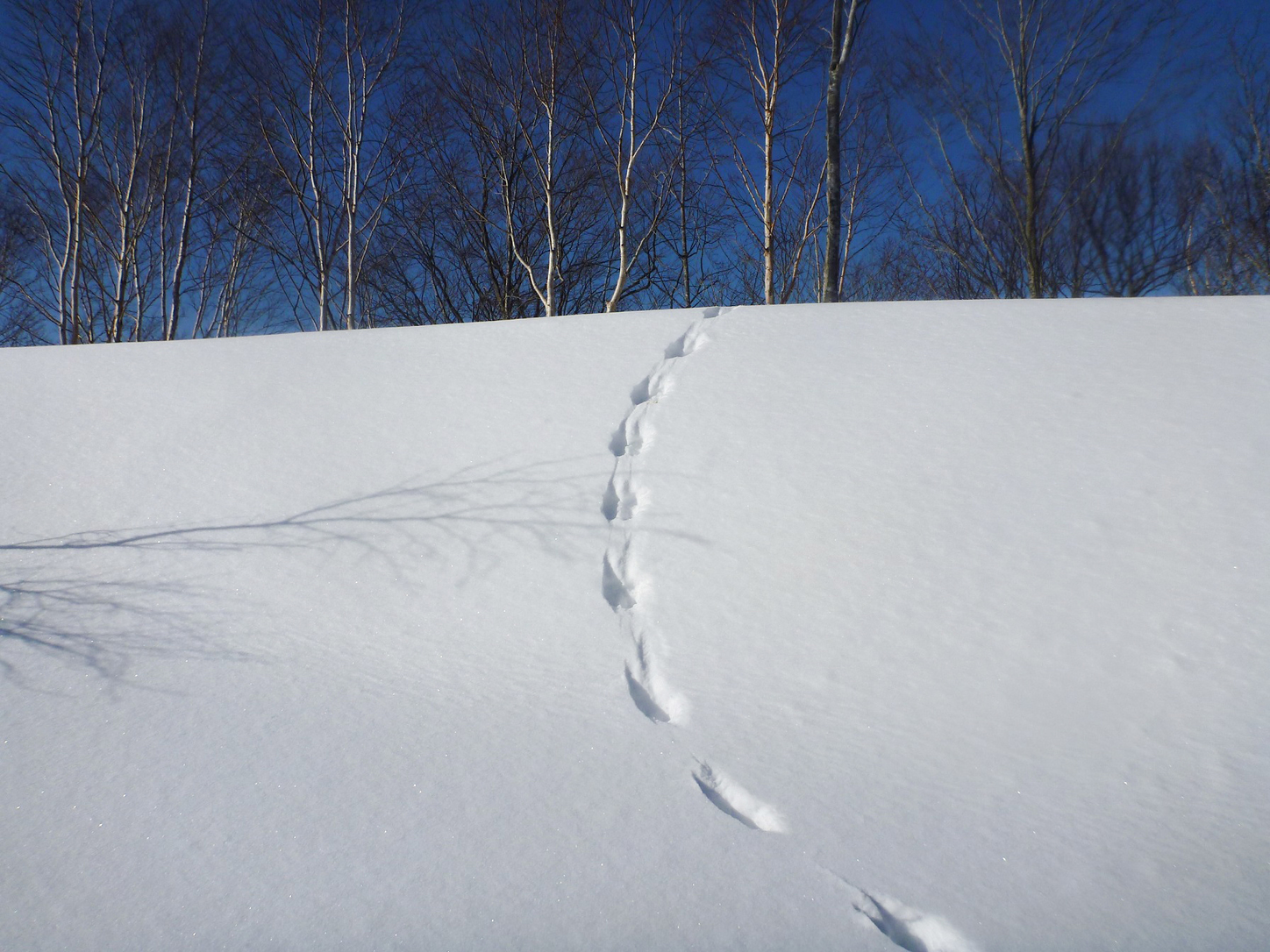
Courtesy of the Ministry of the Environment
Snowshoe Trekking
For a different kind of snow activity, head over to the Amihari Visitor Center, which is located within Towada-Hachimantai National Park. The center provides information on recreational activities, nature and the history of the area. It was renovated in 2020, and uses interactive technology such as augmented reality to present information in several languages. The center sits on the edge of the Amihari Forest where you can experience snowshoe trekking in winter, with a choice of modern snowshoes or traditional oval-shaped wakanjiki shoes available for rent. “Our wakanjiki are handmade with local materials and are ideal for the rugged terrain of in our local mountains and forests. They’re lighter than snowshoes with large claws, so they work better on the slopes,” explains staff member Chieko Kawaguchi.
Visitors of all ages will enjoy venturing out into a pristine winter wonderland and searching for animal footprints. Staff at the center will do their best to answer any questions about the trail and about the plants and animals that can be spotted in the area. Snowshoe trekking is also offered at Koiwai Farm, a working dairy farm with a long history and which is now a major tourist attraction in Shizukuishi. Staff will guide visitors up to the backcountry areas surrounding the farm, and the courses are suitable for all levels of fitness.
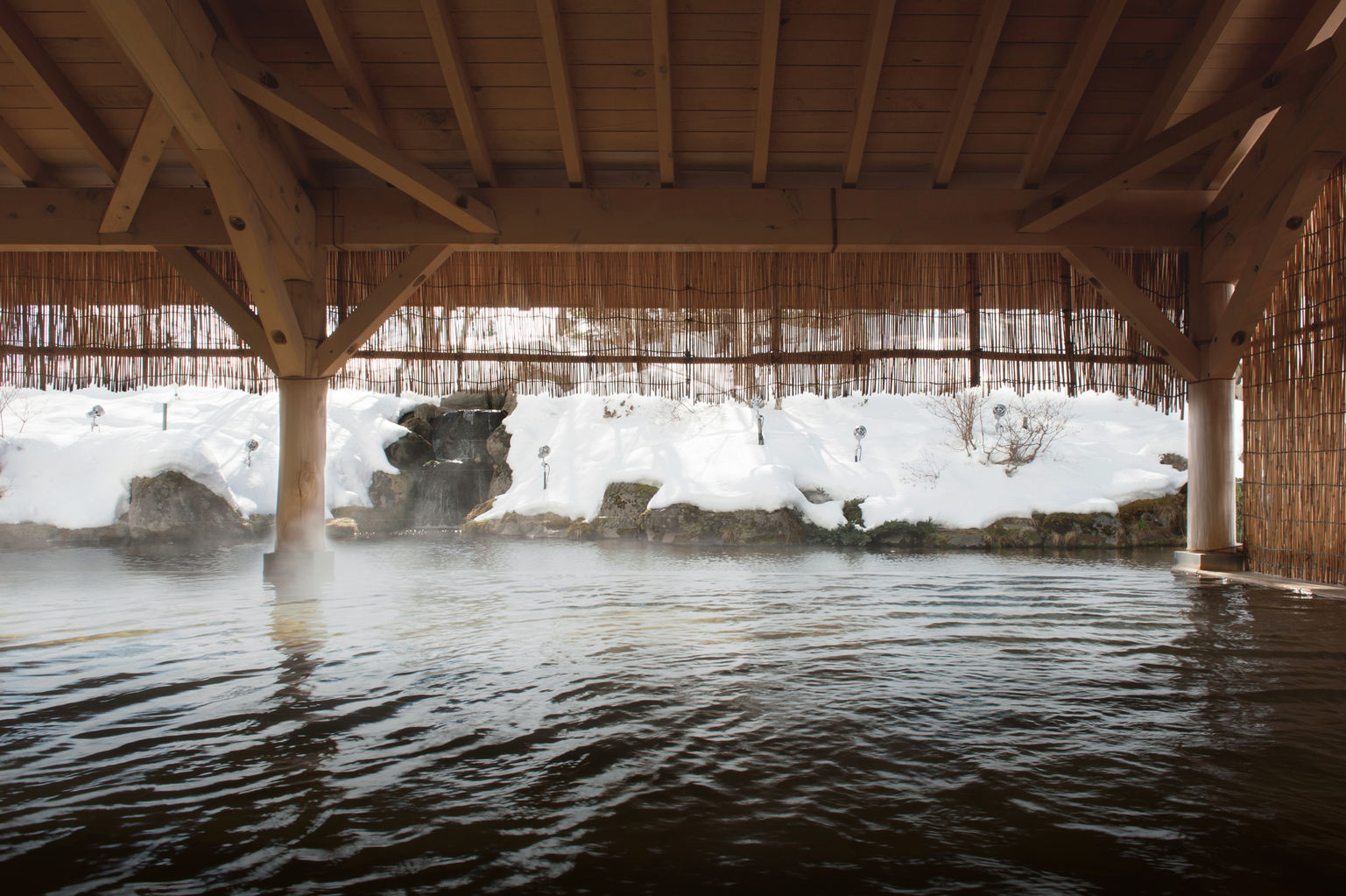
Courtesy of Shizukuishi Prince Hotel
Soak Your Cares Away
The Shizukuishi region has a wide variety of onsen and after a long day on the ski slopes it’s a great way to relax and unwind. While a hotel might be the most convenient choice of accommodation for snow sports, there are many onsen facilities available in the area, some of which welcome day trippers. Of particular note is the Shizukuishi Anekko Roadside Station (Michi-no-Eki) complex, which includes the spacious Hashiba Onsen day spa where you can choose from either Japanese or Western-style baths. There are also a range of restaurants and gift shops in this well-appointed roadside station, so you can indulge in some local cuisine as well as picking up souvenirs of your trip or snacks for the road. Although winter might not seem like ice cream weather, you might change your mind after trying the Hitomebore soft serve, made with the local milk for which Shizukuishi is known.
Shizukuishi also features Oushuku Onsen, a hot springs village which has been popular for more than 450 years. There are a variety of places to stay here, ranging from modern hotels to traditional family-run inns. According to legend, the hot springs were discovered during the late sixteenth century, when a local man saw a Japanese bush warbler soaking its injured leg in the water. The story inspired the creation of Oushuku’s mascot character, Kekyokichi — a chubby bush warbler who loves hot springs. However, a visit to Shizukuishi will prove that this little town definitely isn’t just for the birds.
Further Details: It takes about three hours from Tokyo Station on the Akita Shinkansen to reach Shizukuishi. Once you arrive, a rental car is ideal for getting around and making the most of the area’s attractions.
This article was published in Tokyo Weekender’s Nov-Dec 2021 magazine. Flip through the issue by clicking on the image below.

